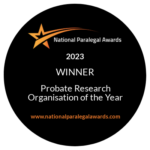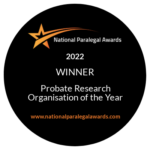Probate Backlog Halved – Digital Wins and Digital Limits
News from His Majesty’s Courts and Tribunals Service (HMCTS) confirms a major shift in the probate landscape, as reported by Todays Wills & Probate. According to their annual report, the total open probate caseload has been reduced by nearly 50% in the past year, from over 69,000 to under 35,500.
This certainly appears to be a positive development. A longstanding source of frustration within the legal sector, the backlog of probate cases has previously attracted criticism due to lengthy wait times and delays to the estate administration process. Now, with increased staffing and a more robust digital infrastructure, HMCTS appears to be making progress.
The headline numbers are encouraging. Workable cases have dropped by 75%, and digital applications are now processed in just over five weeks which is four times faster than the paper route. The government’s digitisation efforts have clearly begun to provide tangible results. In fact, 80% of all probate applications are now submitted online, a remarkable leap from just 17% in 2019.
But a closer look reveals that this milestone may have its own hurdles to overcome.
Beneath the surface, a sizeable portion of the remaining caseload is not simply sitting in a queue – it’s stuck. Over 26,000 applications are currently on hold, waiting on further information or clarification from the applicant. These are not cases that can be pushed through with faster processing times. These cases are stalled by missing information, unresolved queries, or complex legal issues.
This is where professional support becomes essential.
Expertise still matters. For legal professionals, particularly those dealing with estates that involve missing heirs, unclear family structures, or international beneficiaries – where probate genealogists can help the processing times become irrelevant as the underlying problems remain unsolved.
Although speed is preferred with these processes, the quicker turnaround for digital applications could bring added pressure to get things right first time. This leaves less room for error, and more risk for those trying to navigate probate alone online.
For professional users, the improvements may ease some frustrations, but they also raise questions. How would the system handle a sudden surge in new applications? What happens when speed meets complexity? And crucially, where are the safeguards for ensuring that only the rightful heirs benefit? As these services move online we are seeing an increase in fraudulent wills and inheritance fraud.
Probate may be moving forward, but without the right checks and balances, there’s still a risk of vulnerable estates slipping through the cracks.

By Chloe Pipe
2026 Anglia Research Services All Rights Reserved.
Anglia Research and Anglia Research Services are trading names of Anglia Research Services Limited, a company registered in England and Wales: no. 05405509
Marketing by Unity Online









